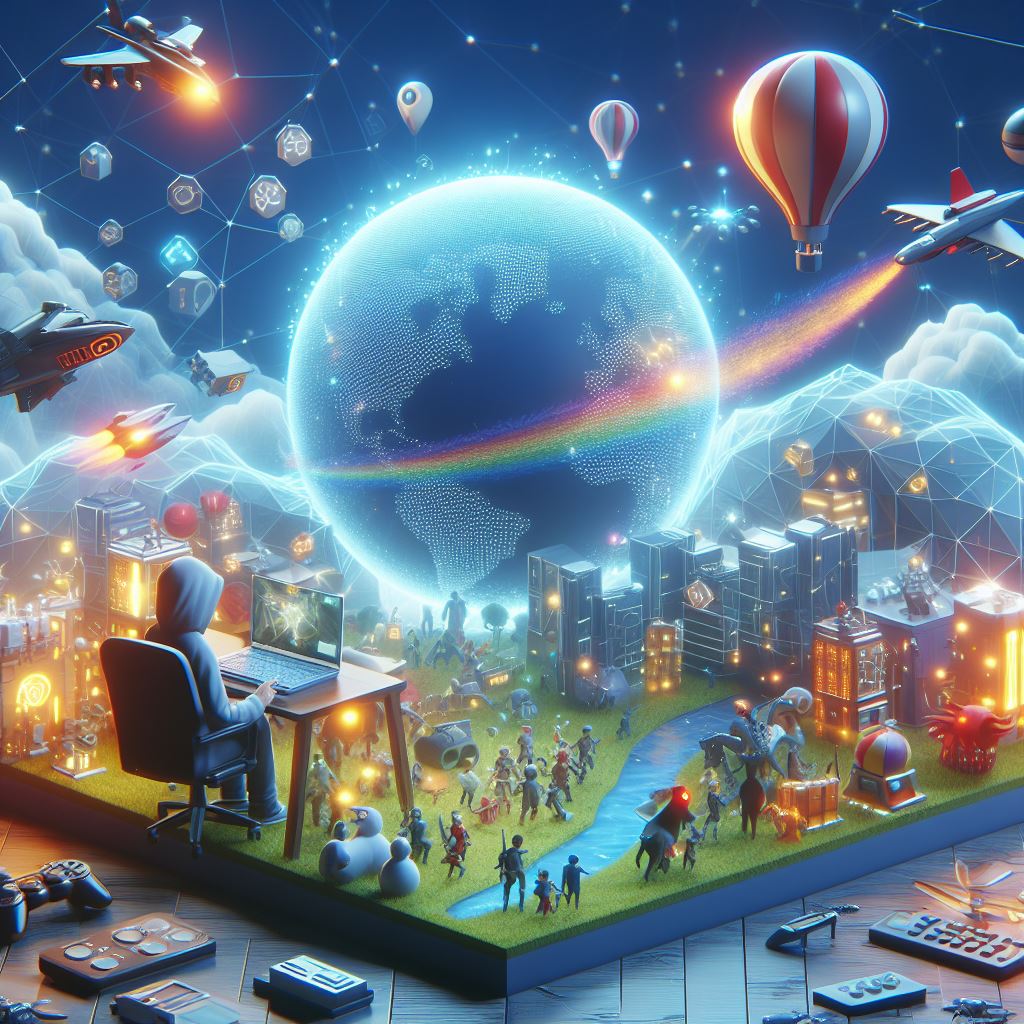The Metaverse in 2024: A Business Reality

12/12/2023
In the realm of buzzwords, the metaverse has emerged as the new star, transcending its origins in fictional movies and virtual games to become a focal point in corporate discussions. The pivotal moment came with Facebook's transformation into Meta in October 2021, thrusting the metaverse into mainstream consciousness.
While the term may sound futuristic, the concept is far from new, dating back to the early 90s when it was first coined in the science fiction novel "Snow Crash." Over the years, metaverses have materialized in virtual games like Second Life and Fortnite, with millions already immersing themselves in these digital realms.
Decoding the Metaverse:
Despite its increasing popularity, the true definition of the metaverse remains elusive. At its core, it represents a parallel virtual world where users, embodied by avatars, engage in activities ranging from shopping and trading to traveling and socializing. Currently, various platforms offer their own versions, but the ultimate vision is an interoperable metaverse, seamlessly integrating multiple platforms and allowing users to transfer digital assets effortlessly.
Much like the internet, the metaverse aims for massive scalability, accommodating millions of digital avatars coexisting simultaneously. It aspires to be an inclusive space, offering myriad virtual opportunities for creators and consumers alike. Blockchain technology has already enabled ownership of unique digital assets and virtual "real estate" in the metaverse, laying the foundation for a ubiquitous metaverse akin to the internet itself.
Metaverse in Action:
The current user base in the metaverse is substantial, with platforms like Roblox boasting 42 million daily visits, and events like Travis Scott's metaverse concert attracting over 45.8 million viewers. Augmented and virtual reality (AR and VR) technologies serve as the gateway to the metaverse, and with an anticipated 1.7 billion mobile AR users worldwide by 2024, the metaverse is set to see exponential growth.
Gen Z dominates the metaverse demographic, constituting 67% of Roblox's 200 million active users, and their influence extends beyond virtual realms. In the U.S., Gen Z consumers are projected to wield a spending power of $143 billion by 2030, surpassing both Millennials and boomers.
Businesses in the Metaverse Race:
Recognizing the metaverse's potential, businesses are swiftly positioning themselves in this digital frontier. Tech companies are developing metaverse platforms where avatars can familiarize themselves with products, while retail brands are crafting metaverse applications to enhance consumer engagement. Notable moves include Facebook's transformation into Meta and Microsoft's acquisition of Activision Blizzard, both strategic endeavors to lead the way in the unfolding metaverse era. The metaverse is no longer a futuristic concept; it's a tangible and transformative business reality in 2024.
Contact us

Spanning 8 cities worldwide and with partners in 100 more, we’re your local yet global agency.
Fancy a coffee, virtual or physical? It’s on us – let’s connect!

